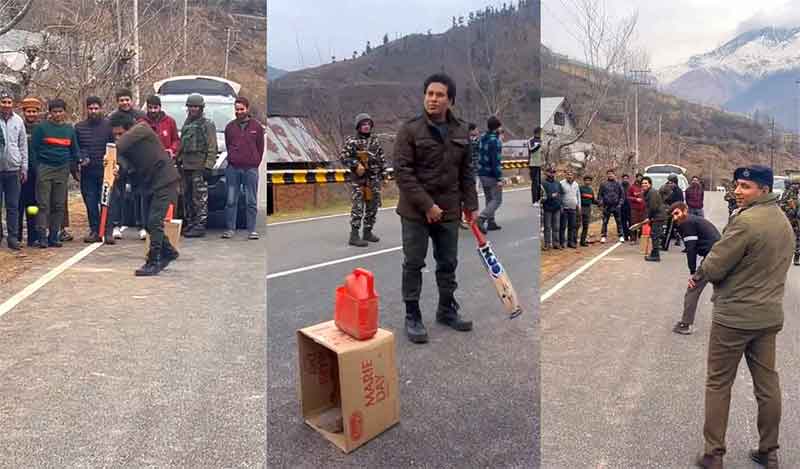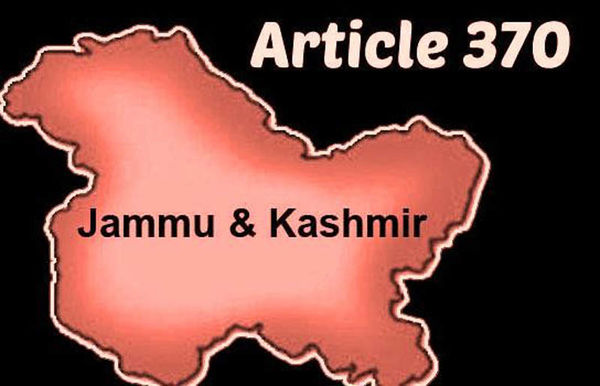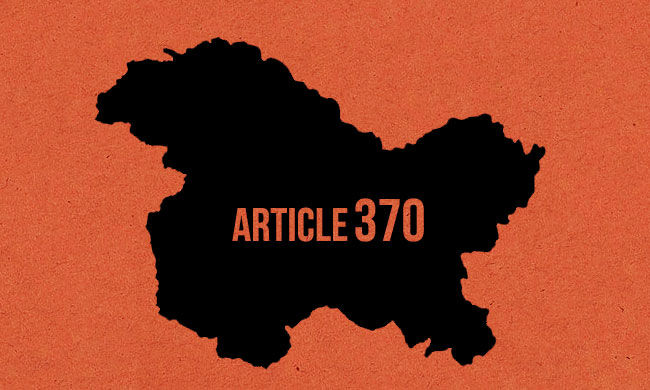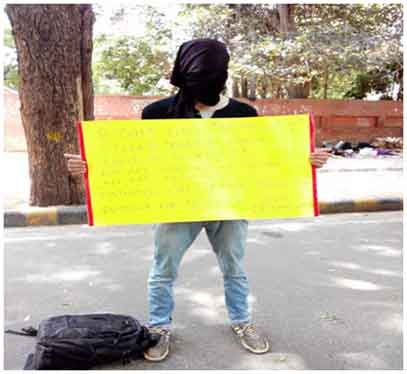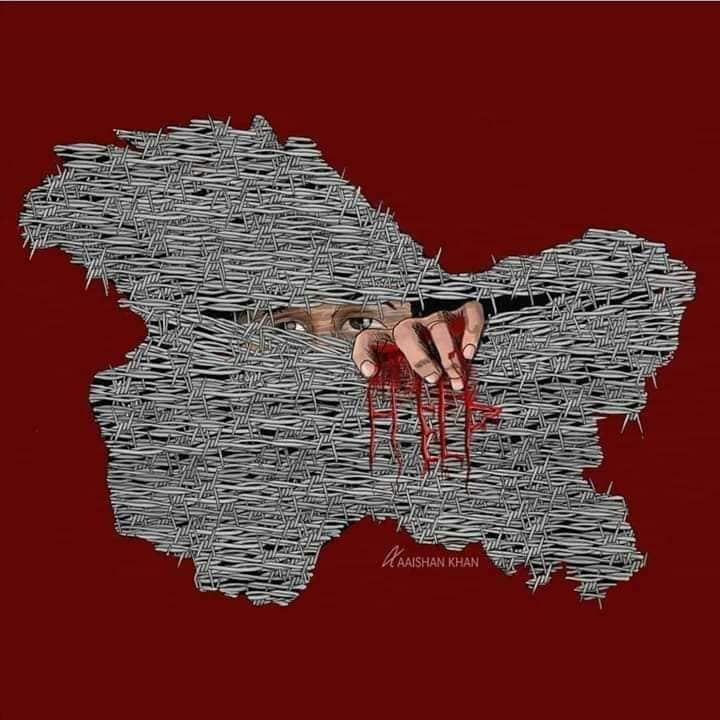
For over two months after the independence from British rule and the subsequent partition of Indian subcontinent in August 1947, the Maharaja of Jammu & Kashmir attempted to remain independent. While there was a war of words going on between Maharaja and the Government of Pakistan, the invasion of a large number of tribesmen from the North-West Frontier Province of Pakistan forced a decision on Maharaja. In order to receive military assistance, Maharaja was forced to accede Indian Union. But, would he have done so anyway? The claims and counterclaims persisted ever since accession. The Maharaja and his associates claimed that the attack came from armed raiders from across the border, whileas the Pakistan insisted that there was indigenous rebellion within the state against Maharaja which had been going on in the state since the 1930s. The widespread belief among Pakistanis is that the tribesmen were incited by the stories of atrocities done by Maharaja, which fleeing Muslims (from Poonch in Jammu division) narrated to them in market places of Peshawar. It is reported widespread that corpses of Muslims killed by Dogra had been paraded through the streets of Peshawar by men who called on the people to support a fight against oppressors in Kashmir and in India. This event is also recalled by Horace Alexander (an English teacher and writer, 1889-1989) after his visit to North-West Frontier Province in 1947. At that time, a number of Kashmiri Muslim families from Poonch fled and settled in the Rawalpindi and the Jhelum Districts of Punjab. The Indian claims maintained that the whole operation into Kashmir was instigated and designed at the highest level in Pakistan, code named as “Gulmarg”. They believed that it was masterminded by Akbar Khan, a junior Army officer who was in Muree (a town located in Rawalpindi District of Pakistan) in September 1947. An Indian Civil Servant V. P. Menon (1893-1965, who served as Secretary to the Government of India in the Ministry of the states, under Sardar Patel) said those raiders were given free transit throughout the Pakistani territory. They are operating from the bases in Pakistan. Their military equipment and other fighting machinery could only be obtained from the Pakistan Army. These are not the kind of weapons which tribesmen normally posses. V. P. Menon also estimated that about 5,000 tribesmen, travelling in 200-300 Lorries crossed into Kashmir.
The battle:
The first real battle happened at Muzaffarabad where a battalion of Dogra troops was stationed. The tribesmen succeeded in capturing the bridge between Muzaffarabad and Domel and on the evening of 23 October, they captured Domel. Over the next few days they also captured Garhi (a small town in Muzaffarabad district) and Chinari (a small village and hill station) and they moved towards Uri, where according to their commander, Khurshid Anwar, they faced the Sikh regiment of Patiala state. No one has confirmed till date when Patiala state forces arrived here, however Alastair Lamb considers the existence of such “exotic forces” as a covert operation. The chief of staff of the state forces, Brigadier, Rajinder Singh, was killed in this battle at Uri. In this regard, V.P. Menon writes: “He and his colleagues will live in history like the gallant Leonidas and his three men who held the Persian invaders at Thermopylae”. The tribesmen after their success at Uri moved along the Jhelum road towards Baramulla, the entry point into the valley, where the road led directly to Srinagar. The power failure at Mohura (on the way from Uri to Baramulla) powerhouse plunged Srinagar in darkness, creating a sense of doomsday. Sheikh Abdullah returned and made efforts to save the city. However, the efforts became tarnished by allegations that Hindu and Sikh refugees were given arms by the Kashmir Government and encouraged to kill those whose loyalty to Sheikh Abdullah and the National conference was doubtful.
Maharaja Hari Singh and his Flight
On October 24, 1947, Maharaja appealed for help to the Government of India. In Delhi, the Governor-General of India Lord Mountbatten, was attending the buffet dinner hoisted in the honour of the foreign Minister of Thailand when Pandit Jawaharlal Nehru informed him about the Kashmir situation. On 25th of October, the defense committee of the cabinet under the chairmanship of Lord Mountbatten met and observed that there was an immediate need to rush in the arms and ammunition already requested by the Kashmir government, writes Alan-Campbell Johnson. Lord Mountbatten although looked content but said that it would be a big foolishness to send troops into a neutral state, where we had no right to send them. Therefore, he urged that legal formalities regarding the accession must be completed and that it should be only temporary, prior to a referendum, plebiscite, or even if these methods were impracticable, by representative public meetings. As a first step towards the establishment of a popular government in Kashmir, Nehru wanted provisions to be made for inclusion of Sheikh Abdullah in Maharaja’s government and insisted that Sheikh Abdullah, a popular Kashmiri leader, should be publicly associated with Indian action. The Indians made much of Sheikh Abdullah’s presence in Delhi at the time of accession stating that he had been pressing the Indian government on behalf of All Jammu & Kashmir National conference for immediate help to resist the tribal invasion. The sequence of events from the moment Maharaja requested help from India on October 24, 1947 to the time when Indian forces landed in Kashmir, October 27, 1947 has been the subject of historical debates. Most of the official accounts rely heavily on the memoirs of an Indian civil servant V.P. Menon, who at the defence committee meeting on 25th October was instructed to fly to Srinagar and assess the situation on ground and report back to the government of India. When he reached Srinagar on 25th October, he recorded that the Maharaja was totally unnerved by the series of events and the loneliness he felt. There were almost no state forces left and the tribesmen had almost reached Baramulla. Menon first met the then Prime Minister of Jammu & Kashmir, Mahajan and then went on to meet Maharaja in his palace. Menon stated that their first priority was to get Maharaja and his family out of Srinagar. Captain Dewan Singh, the Maharaja’s ADC recalls: Menon said to Maharaja: It would be very foolish of you to stay in Srinagar when the tribesmen are nearby. They could get hold of you and get any statement from you. So, on the advice of Indian civil servant V.P. Menon, Maharaja left Srinagar and went to Jammu. Karan Singh was with his parents as they fled from Srinagar. Maharaja left in the early hours of morning on 26 October, 1947 and crawled over 9000 feet Banihal pass just when the first light was beginning to break. According to Victor Rosenthal, Maharaja’s friend and confidant, the Maharaja did not speak a single word during the entire journey from Srinagar to Jammu. Once arrived at his palace in Jammu, he said; we have lost Kashmir. The Maharaja’s flight from Srinagar to Jammu is most often used by his critics as a reason for stating that since Maharaja had no control over the state and hence he was morally and ethically no longer holding any right to take the decision on accession. As the Maharaja departed to Jammu, V.P. Menon went to the state guest house to get some sleep, but he did not sleep. He narrated: just as I was going to sleep, the Prime Minister Mahajan telephoned me to say that it was unsafe to stay any longer in the city. Both Prime Minister Mahajan and Menon went to Delhi on the first flight on the morning of October 26, and reached Safdarjung airport at about 8:00 am. V.P. Menon straight went to the defence meeting which started at 10:00 am. The Prime Minister Mahajan went to rest at the house of the then defense Minister, Baldev Singh. At about 12:45 pm, Defense Minister Baldev Singh came with the news that the decision had been taken to send two companies of Indian troops to Srinagar. V.P. Menon and Prime Minister Mahajan, soon after the meeting, took the plane to Jammu
The Instrument of Accession:
On his arrival in Jammu, Menon found that Maharaja was still asleep. Menon woke Maharaja up and informed him about what happened at the Defence committee in Delhi. The Maharaja was ready to accede at once. The Maharaja then wrote a letter to Governor-General Lord Mountbatten describing the pitiable condition of his state and mentioned that accession is full of regret. The Maharaja wanted to take time to decide to which dominion he should accede and whether it is in the best interest of both the dominions that his state should remain independent, and with cordial relations with both. However the tribal invasion forced a decision on him and, more importantly, Lord Mountbatten’s insistence on “Accession before Assistance” had pushed him further than he may have wanted to go. The Maharaja wanted friendly assistance from India as usual to his earlier requests such as at the time of Poonch rebellion, but this time the dominion of India put a stringent condition of “Accession before Assistance”. Therefore, Maharaja was left with no choice but to accede to dominion of India.
V.P. Menon returned to Delhi with both the letter full of desperation and Instrument of accession. Sardar Patel was at the airport and they both went to attend the meeting of the Defense committee that evening. There was a very long discussion and it was finally decided that the accession of the state of Jammu & Kashmir should be accepted, subject to the provision that a plebiscite would be held in the state when law and order situation allowed. In his letter dated 27th October, 1947, Lord Mountbatten once again reiterated that the question of accession should be decided in accordance with the wishes of the people of the state. The precedent was Junagarh, which basically was the Kashmir but in reverse; a Muslim ruler, Hindu majority. When the Nawab of Junagarh, Sir Mahabatkhan Rasulkhanji, acceded to Pakistan, the government of India resisted this decision on the grounds that the majority of people were Hindu, calling for a plebiscite to determine the will of the people. Indian troops invaded Junagarh at the end of October, about the same time the Kashmir crisis erupted. On November 7, Sir Shah Nawaz Khan Bhutto, the Prime Minister of Junagarh resigned, accepting the Indian position pending the outcome of plebiscite. The plebiscite was eventually held in February 1948, when the majority of Hindu population overwhelmingly voted in favour of India. The same principle should be applied to Kashmir as well.
On the morning of October, 27, 1947, 300 troops of the first Sikh Battalion were airlifted to Srinagar. Along with Menon, the Prime Minister Mahajan flew to Jammu to get Maharaja’s signature on certain supplementary documents related to accession. The official version of the sequence of events leading upto the signing of the Instrument of Accession by Maharaja Hari Singh does not always correspond with the individual accounts as reported by numerous publications. The Maharaja left Srinagar in the very early hours of 26 October, as the Prime Minister confirms, at 2:00 am. The Journey by road from Srinagar to Jammu during winter could at least take 16 hours. The fact that Maharaja reached Banihal pass when first light was beginning to break and the Convoy also stopped at Kud (a small village about 70 Kms from Jammu), the convoy reached Jammu on next evening, recalls Maharaja’s Son, Dr. Karan Singh. But V.P. Menon states that he was back to the Defense committee meeting in Delhi with Maharaja’s letter and Instrument of accession on the evening of 26th October. When, therefore, could he have met Maharaja on 26th October? V.P. Menon also mentions that Prime Minister Mahajan also accompanied him to Jammu on 26th october, however, Mahajan makes no mention of this visit in his memoirs. Mahajan also recollects on the evening of 26th October and around dinner time, Nehru sent a message that he should fly to Jammu with Menon to inform about the decision of the defense cabinet that military aid will be provided. Mahajan states that Instrument of accession was signed on 24 october at Srinagar, however no witness corroborate the Mahajan’s statement. If the Instrument of Accession was signed in Srinagar before Maharaja left for Jammu, why was it necessary for Menon to relate that it was signed in Jammu on October 26. And there is a much quoted meeting between Alexander Symon, acting British high commissioner in Delhi, and V.P. Menon on the evening of October 26th, where Menon and Symons sat down to have a drink. Menon, with a great smile on his face, pulled a piece of paper and waved it to Symon and said: Here it is. “We have Kashmir. The bastard signed that Act of Accession. And now that we have got it, we will never let it go”. However, Symon’s diary of events on October 26 tells a different story. In his letter to Sir Archibald Carter at Commonwealth Relations Office at London, dictated at 4:00 pm, 27th October, Symon says that he telephoned to V.P. Menon’s office a few minutes ago, but was told that he is yet to return from Jammu. What is significant in the controversial sequence of events is that Indian government found it necessary to maintain that Maharaja acceded to Indian Dominion before Indian troops were sent to Srinagar. The absence of a signed Instrument of Accession prior to the official arrival of Indian troops would have reduced the Indian claim of assistance. Therefore, the belief that the state of Jammu & Kashmir acceded to India before Indian troops were sent prevailed. It is important to note that, whether or not the Instrument of Accession was signed before or after Indian troops landed in Srinagar, the Maharaja of Jammu & Kashmir agreed to accession in principle upon the terms and conditions laid down by Governor-general, Lord Mountbatten.
Mountbatten’s insistence on accession before assistance has also been questioned. Why was it necessary for Jammu & Kashmir-technically an independent country to accede first before getting any military assistance? Why was the UN not involved? Why Mountbatten gave such huge importance to a very quick accession? These are some hard questions where no convincing explanations were provided. Had Mountbatten preferred assistance without accession, the Indian presence in Muslim majority Kashmir would have been temporary and the possibility of holding a referendum was more real. As written Victoria Schofield: “By exaggerated legalism the Governor-General helped to bring about the result that was most feared, the protracted Occupation of Kashmir by India with no attempt to show that it enjoyed popular support”.
The Instrument of Accession, which formed the basis of future relationship of Jammu & Kashmir with Indian union accorded a special status which was not granted to other princely states. However, the special status was recently abrogated by Indian parliament. Legally, India’s jurisdiction in Jammu & Kashmir only extended to defense, communication and foreign affairs. It was anticipated that accession would be confirmed by the will of the people as happened in case of Junagarh. The will of the people was however never ascertained. The history of what happened to the rights of the people of Jammu & Kashmir and special status partially explains the events in the present day.
Dr Nissar Ul Ashraf Is a teacher who can be reached at [email protected]
SIGN UP FOR COUNTERCURRENTS DAILY NEWSLETTER

